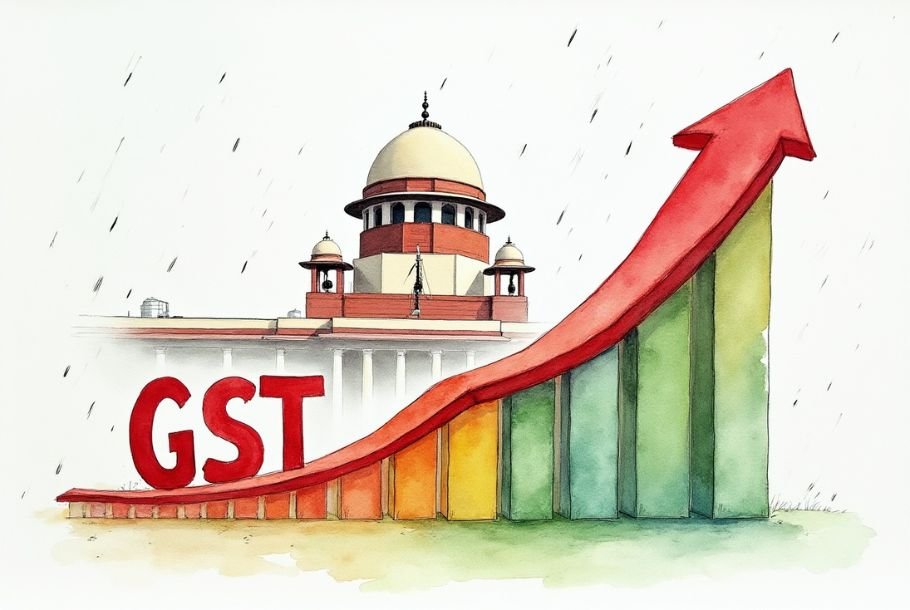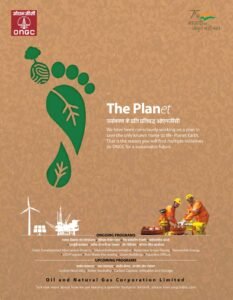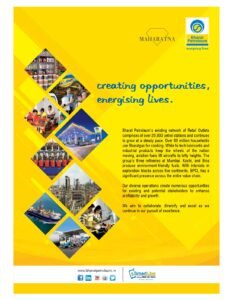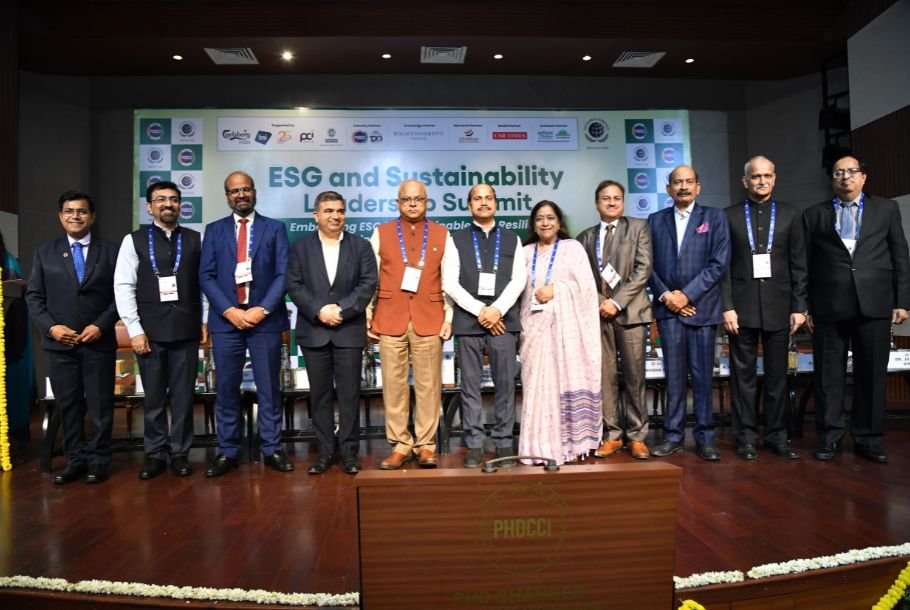
August 11, 2025 – The UN Global Compact Network India (UN GCNI) successfully convened the ESG and Sustainability Leadership Summit 2025 at PHD House, Delhi, bringing together industry leaders, policymakers, regulators, and sustainability experts to explore how Indian businesses can embed environmental, social, and governance (ESG) principles into their strategic and operational core.
Supported by Carlsberg India, BSI, Bureau Veritas, PCI India, with PHD Chamber of Commerce and Industry as Industry Partner, IILM University as Knowledge Partner, Shikhar – Organization for social development as Mementoes Partner and CSR Times as Media Partner, the Summit focused on the theme “Embedding ESG for Sustainable and Resilient Business and Supply Chains”. Discussions spanned regulatory updates, digital innovation, water stewardship, public health, supply chain accountability, and leadership transformation.
Inaugural Session – Setting the Agenda for ESG Transformation
Shri Ratnesh, Executive Director, UN GCNI, welcomed participants by underscoring that ESG should be viewed as a strategic imperative rather than a compliance requirement. He stressed integrating ESG across supply chains and aligning with the Sustainable Development Goals (SDGs). “True ESG integration is a cultural transformation—it must guide leadership decisions and shape business models that are not only profitable, but purposeful,” he said.
Shri Rishi Chawla, Vice President – Corporate Affairs, Carlsberg India, in his Opening Remarks, emphasized multi-stakeholder collaboration and the urgent need for action over awareness. Reflecting on evolving societal expectations, he noted that ESG drives resilience, investor trust, and competitiveness. “Sustainability is no longer optional—it’s the strategic imperative that will determine whether businesses lead with resilience or lag in relevance,” he remarked.
Dr. Jatinder Singh, Deputy Secretary General, PHDCCI, in the Theme Address, called ESG the “core operating philosophy” for modern businesses. He pointed out that inclusive hiring, climate resilience, and ethical governance are now strategic differentiators. “Success is not only measured in profit, but in the positive impact we leave—for our communities, our people, and our planet,” he emphasized.
Shri Indrajit Chaudhuri, CEO & Country Director, PCI India, stressed governance as the enabling pillar of ESG. Warning against reducing ESG to branding exercises, he said, “Governance is not just the ‘G’ in ESG—it is the enabler that turns commitments into credibility.”
Shri Amarendra Khatua, IFS (Retd.), linked ESG to diplomacy and global positioning. He observed that sustainability is shaping international relations and trade legitimacy. “Sustainability is now a form of soft power, shaping not only markets, but the way nations are respected and trusted,” he noted.
Shri Atul Garg, Chairperson, CGIT & EPF Appellate Tribunal, spotlighted the social dimension of ESG—particularly labor rights and workplace equity. “Sustainability must be lived in everyday workplace realities—rooted in fairness, inclusion, and human dignity,” he said.
Shri C.V. Raghu, President, GCAI, urged legal professionals to act as ESG enablers. “General counsels must become ESG stewards—embedding it into governance charters, contracts, and compliance systems,” he stated.
Dr. K. Madan Gopal, Advisor, NHSRC, Ministry of Health & Family Welfare, emphasized health as a core ESG pillar and a determinant of workforce stability. “A sustainable economy cannot exist without a healthy workforce and resilient communities,” he said.
Shri Santosh Shukla, Chief General Manager, SEBI, explained the role of frameworks like BRSR Core in building transparency. “Disclosures are only the beginning—the true goal is a mindset where ESG is a strategic lever for competitiveness and trust,” he asserted.
Ms. Anuradha Goel, Chairperson, Family Welfare Foundation, PHDCCI, called for action-driven ESG adoption. “Let us lead not just with policies, but with purpose—not just with ambition, but with action,” she urged.
Dr. Pravakar Mohanty, Scientist-E & Director, Department of Science & Technology, linked ESG integration with national priorities such as the Paris Agreement and SDGs. “ESG must evolve from being a corporate acronym into a national ethos—rooted in science, ambition, and ethics,” he stated.
Dr. Somnath Singh, Deputy Director, UN GCNI, framed ESG as a fundamental pillar of sustainable development, not a passing trend. He emphasized that integrating ESG across supply chains, local ecosystems, and workforce cultures is essential to achieving the Sustainable Development Goals (SDGs). He highlighted partnerships—like the collaboration with PHDCCI, Carlsberg India, BSI, Bureau Veritas and PCI India—as critical enablers of transformation.
He said “ESG today is not merely a trend or compliance exercise—it is the foundation upon which sustainable development and long-term business resilience will be built. This summit is a catalyst for moving from conversation to implementation.”
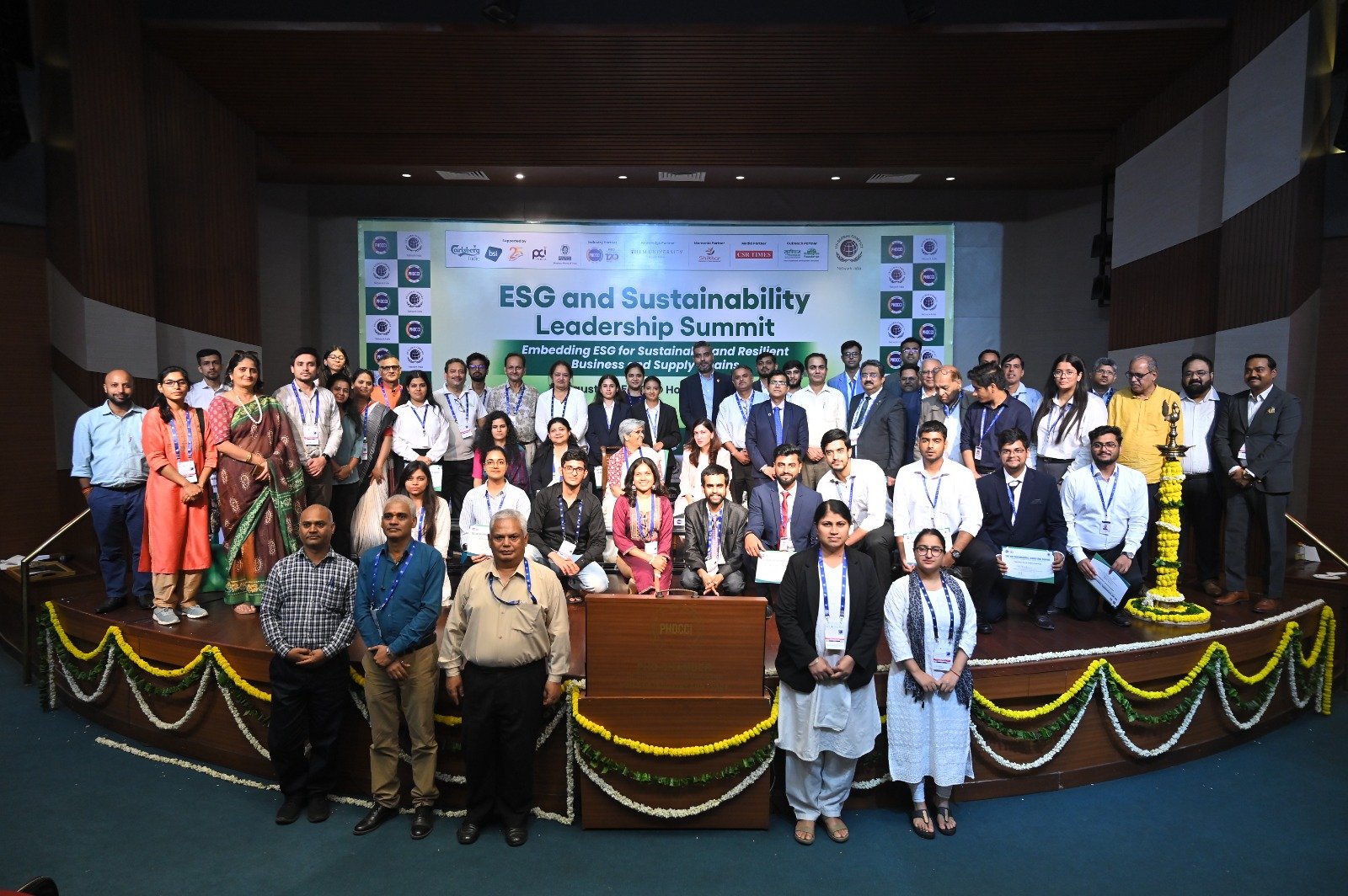
Thematic Plenary Sessions – From Compliance to Culture
Plenary I “Driving ESG Compliance through Digital Innovation (AI) and Evolving Regulations”
Moderated by Dr. Rajiv Chawla, Chairman, IamSMEofIndia, this session featured Shri Anand Pathak (CEO & Founder, Fitsol), Shri Amit Goswami (Managing Director, ESG Global Partners Pvt. Ltd.), Ms. Aditi Balbir (CEO, EcoRatings), Shri Naveen Kumar Shelar (Legal Practitioner & ESG & Governance Expert), and Shri Piyush Manocha (Deputy Director – Law, Delhi Electricity Regulatory Commission). Panelists highlighted AI, blockchain, and automated dashboards for real-time ESG tracking, stressing the need to shift ESG from annual reporting to live, traceable data management.
Plenary II “Smart ESG Sustainable Water Management” Moderated by Shri Rishi Chawla, Vice President – Corporate Affairs, Carlsberg India, with speakers Shri Salahuddin Saiphy (Principal Lead – Water Management, SM Sehgal Foundation), Shri Depinder Kapur (Head – Climate Centre for Cities, NIUA), and Shri Khurram Nayyab (General Manager – CSR & Head of Governance, Vedanta/Cairn Oil & Gas). The discussion urged shared stewardship between corporates, government, and communities to address India’s projected 50% water demand-supply gap by 2030.
Plenary III “Sustainability & Public Health – Strengthening Corporate Accountability”
Moderated by Dr. K. Madan Gopal, Advisor, NHSRC, Ministry of Health & Family Welfare, the session featured Dr. Somnath Singh (Deputy Director, UN GCNI), Dr. Karan Thakur (Group Lead – Sustainability & ESG, Indraprastha Apollo Hospitals), Dr. Uma Nambiar (CEO, IISC Medical School Foundation), and Dr. Anuj Dandotia (Associate Director & Project Lead – Health & Nutrition, PCI India). Panelists called for workplace well-being, community health partnerships, and health equity as non-negotiable ESG priorities, offering perspectives on institutional governance, cultural relevance, and equity-focused ESG indicators.
Plenary IV “Embedding ESG in Business DNA – The Road to Sustainable Excellence”
Moderated by Shri Paritosh Chauhan (Partner – ESG & Sustainability Affairs, Lakshmikumaran & Sridharan Attorneys), with panelists Ms. Shammi Singh (Head of Social – ISA, BSI Group Assurance Ltd.), Shri Sujit S Nair (Chairman, Europe India Centre for Business and Industry), and Dr. Shruti Sharma Rana (Associate Professor, TERI School of Advanced Studies). The session emphasized capacity building, internal KPIs, third-party assurance, and enhancing global trade competitiveness.
The Fireside Chat – C-Suite in Action, showcased how executive leadership is operationalizing ESG across value chains. The discussion underscored that ESG led from the top can transform organizational culture, risk management, and long-term competitiveness.
Fireside Chat – “C-Suite in Action Leading ESG Across Value Chains”, Moderated by Shri Rupam Baruah (Head of Sustainability – South Asia, Bureau Veritas), this conversation featured Shri Nishant Anand (Head – Business Operations, IAAS-India), Ms. Raavi Birbal (Legal Expert & Advocate on ESG Compliance), Ms. Poonam Jindgar (Vice President & Global Head – ESG & Sustainability, BirlaSoft), and Ms. Arti Ahluwalia (United Nations – Commons Cluster NGO Major Group). Speakers showcased how executive leadership is operationalizing ESG across value chains, underscoring that ESG led from the top can transform organizational culture, risk management, and long-term competitiveness.
Valedictory Session – From Dialogue to Action, Moderated by Ms. Gagandeep Bhullar (Founder & CEO, SuperHumanRace; Member, UN GCNI), the Valedictory Session brought together diverse perspectives on translating ESG commitments into tangible outcomes.
Dr. Pallavi Negi (Faculty Associate, IILM University) emphasized the importance of integrating ESG principles into education and leadership training, ensuring future decision-makers are equipped to embed sustainability in their professional ethos.
Mr. Sanjeev Verma (Head – Environment, Health & Safety; Vice President – Western Region, UN GCNI) highlighted the need for clear operational KPIs and cross-functional accountability to ensure ESG objectives are firmly rooted in day-to-day business practices.
Mr. Peter (Advocacy Manager) underscored the centrality of supply chain transparency, stressing that a company’s ESG maturity is defined not only by its strongest performers but also by its ability to uplift and engage its most vulnerable suppliers.
Mr. Ajit Kumar (Founder & Managing Director, Khushigram Foundation) called for inclusive ESG strategies that actively involve communities, small businesses, and grassroots stakeholders, framing sustainability as a collective, people-centred movement.
Together, the speakers reinforced that the next phase of ESG leadership must focus on implementation, measurable impact, and collaborative action.
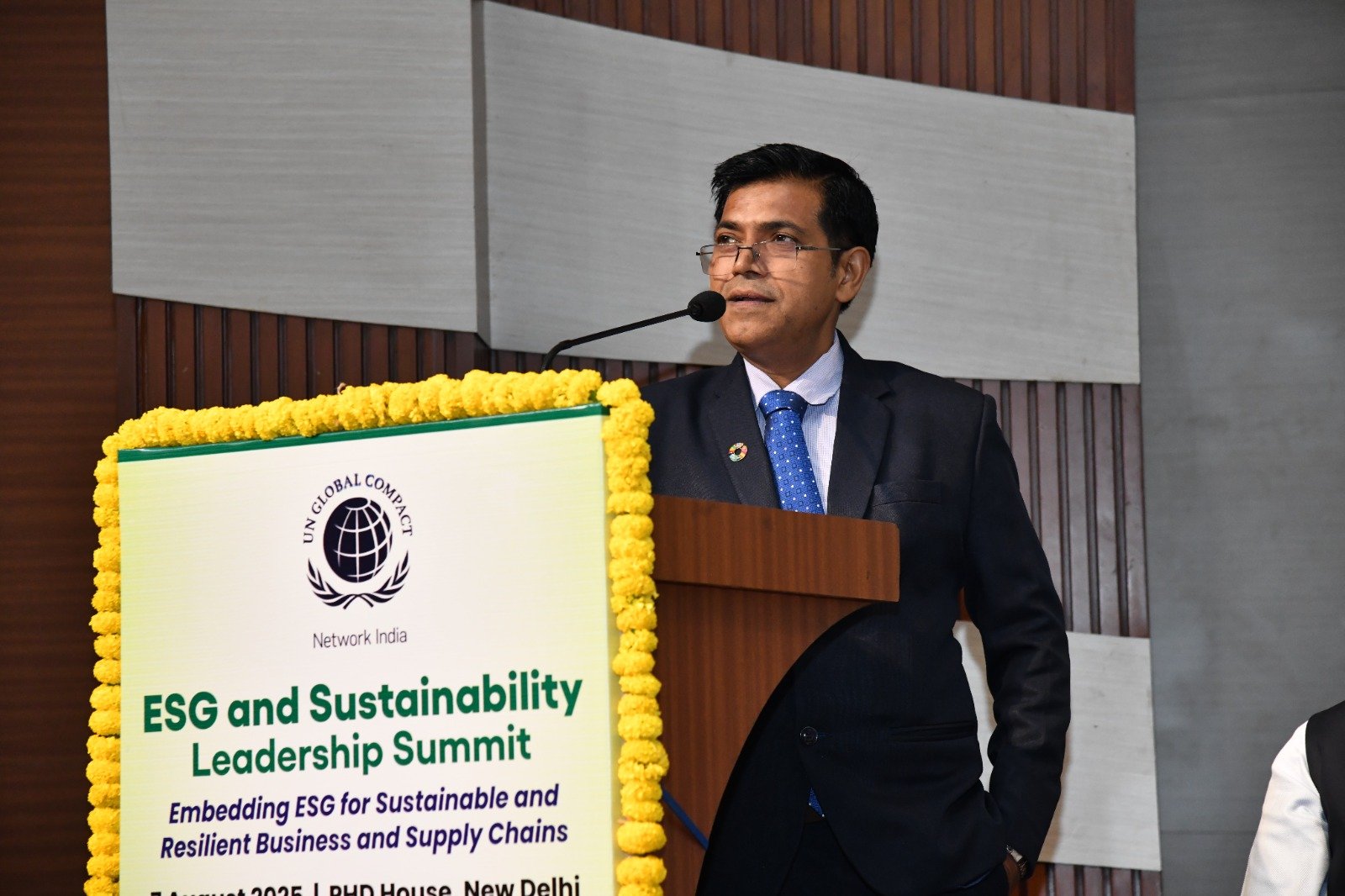
In the Closing Remarks, Dr. Somnath Singh synthesized the Summit’s outcomes, highlighting the urgent need to translate discussions into measurable change.
He quoted “The conversations here must now translate into tangible, measurable action. ESG is no longer a matter of choice—it is the new baseline for building businesses that are future-ready, human-centric, and environmentally responsible.”


